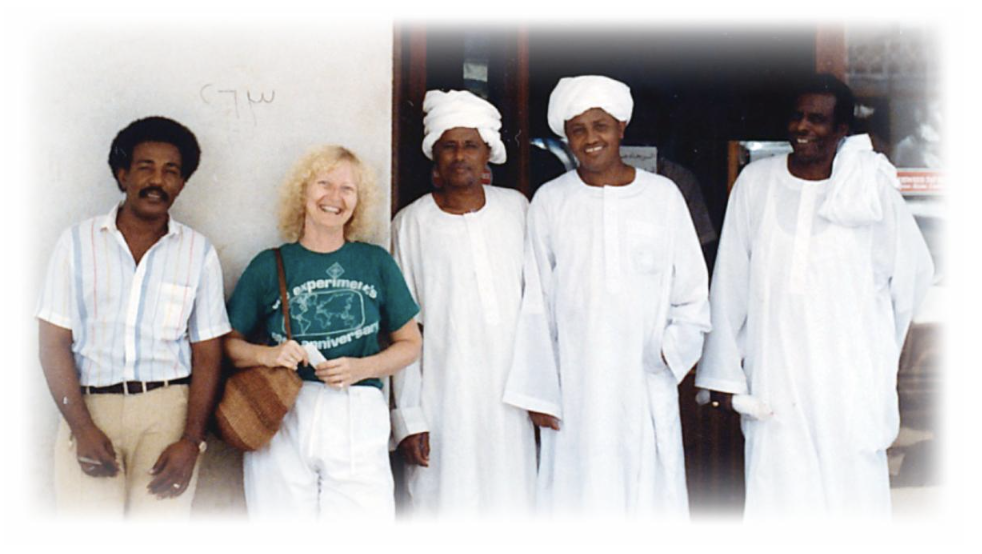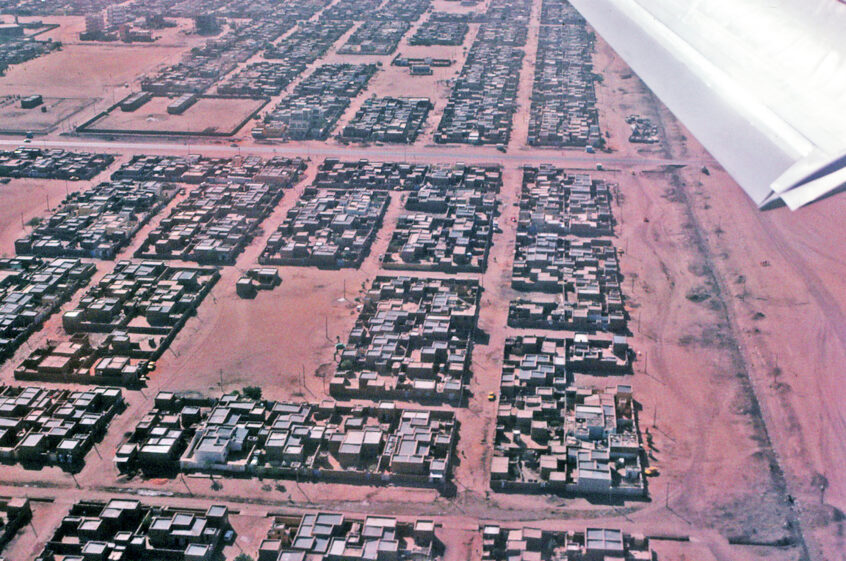Khartoum from the air. Domestic flights during the daytime. Int’l flights only in the middle of the night.
I’ve always depended on the kindness of strangers.
~ Blanche DuBois in A Streetcar Named Desire by Tennessee Williams
It was about 2:30 am when I landed in Khartoum for the first time. International flights almost always arrived in the middle of the night. I heard two different explanations. One explanation was that Khartoum was sort of a halfway point between Europe and other African destinations. So, it was a middle-of-the-night stop on overnight flights. The second explanation was that the tarmac was soft during the day because of the desert heat. Thus, it wasn’t safe for planes over a certain weight to land during the day. I like the second explanation – though both have merit.
It was probably 3:30 am by the time I got through customs. I had communicated ahead, of course, so that someone from the project team would be there to meet me. I kept looking for someone in the arrivals hall but saw no one. I went outside to see if anyone was waiting there. No one. Pitch black.
There were no taxis. The airport was emptying out. No telephone that I could find. It wouldn’t matter anyway as I had no phone number for the project house. First time…middle of the night…strange place…alone…traveling for 24 hours…fighting off fatigue and panic….What was I to do?
Finally, as the customs agents were turning off the lights and readying to lock the airport shut, I took what felt like a huge risk. I hesitantly approached two Sudanese men – the last two people in the arrivals area – and asked if they would give me a ride to a hotel in the center of the city. How I asked them, I’m not sure since we didn’t speak the same language. They had an animated conversation about my request. Clearly, they had mixed feelings. Yet, seeing that I was rather desperate and scared, they reluctantly agreed.
What I knew academically but still didn’t fully comprehend in lived experience was that this was a huge risk for them as well. What if they got stopped along the way and the police saw them with a strange single white woman who was in the car with them in the middle of the night? Sharia (Islamic Law) forbids such a thing and punishments can be harsh and severe. The only women men can be with alone are their wives and family. And, if we were stopped, having no Arabic, I would not be able to help explain.
They drove me to a good hotel. One of the men went inside with me to make sure I got settled. We said goodbye and I never saw either of those kind and generous men again.
The next morning I got a call from someone on the project team saying that they thought I was arriving the next day. How did they know where I was staying to be able to call me? I have no idea. However, I had learned while living in Mogadishu, Somalia, a couple of years before that some large cities in Africa still have small town ways. “And, in any case,” my colleague said, “You don’t exactly blend into the crowd!”
Kindness is universal to the human experience. It pays attention to the needs of ‘the other’ and responds in ways that are considerate, generous, and emotionally empathic. And, again and again, I have witnessed that what goes around comes around.

Outside a coffee shop next to the Hotel Acropol in downtown Khartoum.
Top photo by Barbara
Khartoum rooftops

